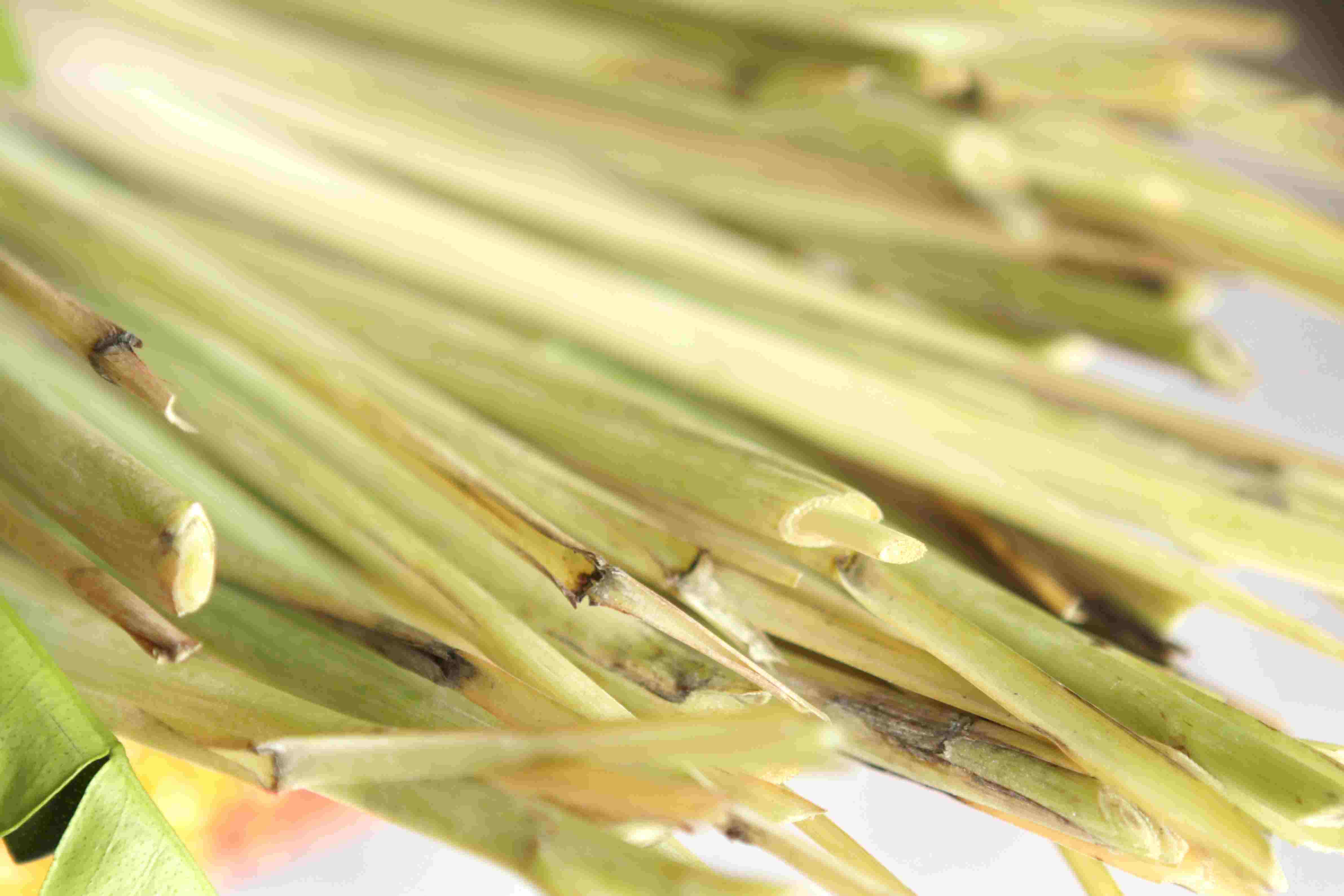
Lemongrass is native to India. It is widely used as an herb in Asian cuisine. It has a citrus flavor and can be dried and powdered, or used fresh. Lemon grass is commonly used in teas, soups, and curries. It is also suitable for poultry, fish, and seafood. It is often used as a tea in African and Latin American countries. Lemon grass has medicinal properties and has long been used extensively in ancient Indian Ayurvedic medicines. It is believed to help with relieving cough and nasal congestion.
Lemongrass is a tropical herb that is a member of the grass family. It is native to Southeast Asia and is widely used in Asian cuisine as well as in traditional medicine. Lemongrass is known for its refreshing lemon-like flavor and aroma and is a popular ingredient in various dishes, teas, and essential oils.
This herb is also known by its botanical name Cymbopogon citratus, and it is a perennial plant that can grow up to three or four feet tall. It has a thick stem with long, slender, green leaves that grow in a bushy cluster. The leaves of lemongrass are tough and fibrous, and they have a sharp, lemony flavor that is used in cooking and in traditional medicine.
Lemongrass has many health benefits and is used in alternative medicine to treat a wide range of ailments. It is a natural anti-inflammatory and antioxidant, and it is believed to have antibacterial and antifungal properties, which make it an effective natural remedy for many health conditions.
One of the most significant health benefits of lemongrass is its ability to aid the digestive system. It can help to relieve digestive problems such as indigestion, bloating, and constipation and can improve the absorption of nutrients. Additionally, lemongrass has antimicrobial properties that help to kill harmful bacteria in the gut, which can prevent infections and maintain a healthy gut microbiome.
Lemongrass is also known for its calming and relaxing properties. It is believed to be an effective natural remedy for anxiety, depression, and insomnia. The essential oil of lemongrass can be used in aromatherapy to help reduce stress and promote relaxation.
In addition to its health benefits, lemongrass is also a popular ingredient in cooking. It is commonly used in Thai, Vietnamese, and Indonesian cuisine and is particularly popular in soups, curries, and stir-fries. The citrusy flavor of lemongrass makes it a perfect addition to seafood, chicken, and vegetable dishes, and it can also be used to add flavor to marinades, dressings, and sauces.
To use lemongrass in cooking, you can chop it finely and add it to dishes as you would any other herb. Alternatively, you can use whole stalks of lemongrass to infuse flavor into soups and curries. Simply bruise the stalks with the back of a knife to release their essential oils and flavor, then add them to your dish while cooking.
Lemongrass is also a popular ingredient in teas and herbal remedies. To make lemongrass tea, simply steep a handful of fresh or dried lemongrass leaves in hot water for a few minutes. This tea is refreshing and warming and is believed to have a range of health benefits, including boosting the immune system and aiding digestion.
In addition to its culinary and medicinal uses, lemongrass is also used in cosmetics and skincare products. The essential oil of lemongrass is added to lotions, creams, and soaps for its antibacterial and anti-inflammatory properties and its fresh, uplifting scent.
Overall, lemongrass is a versatile herb that is widely used in traditional medicine, cooking, and aromatherapy. Its refreshing lemony flavor and aroma make it a popular ingredient in many dishes, teas, and skincare products, and its various health benefits make it an essential part of any herbal medicine cabinet. Whether you are looking for a natural remedy for digestive problems, anxiety, or inflammation, or simply want to add some unique flavor to your cooking, lemongrass is an excellent herb to have on hand.